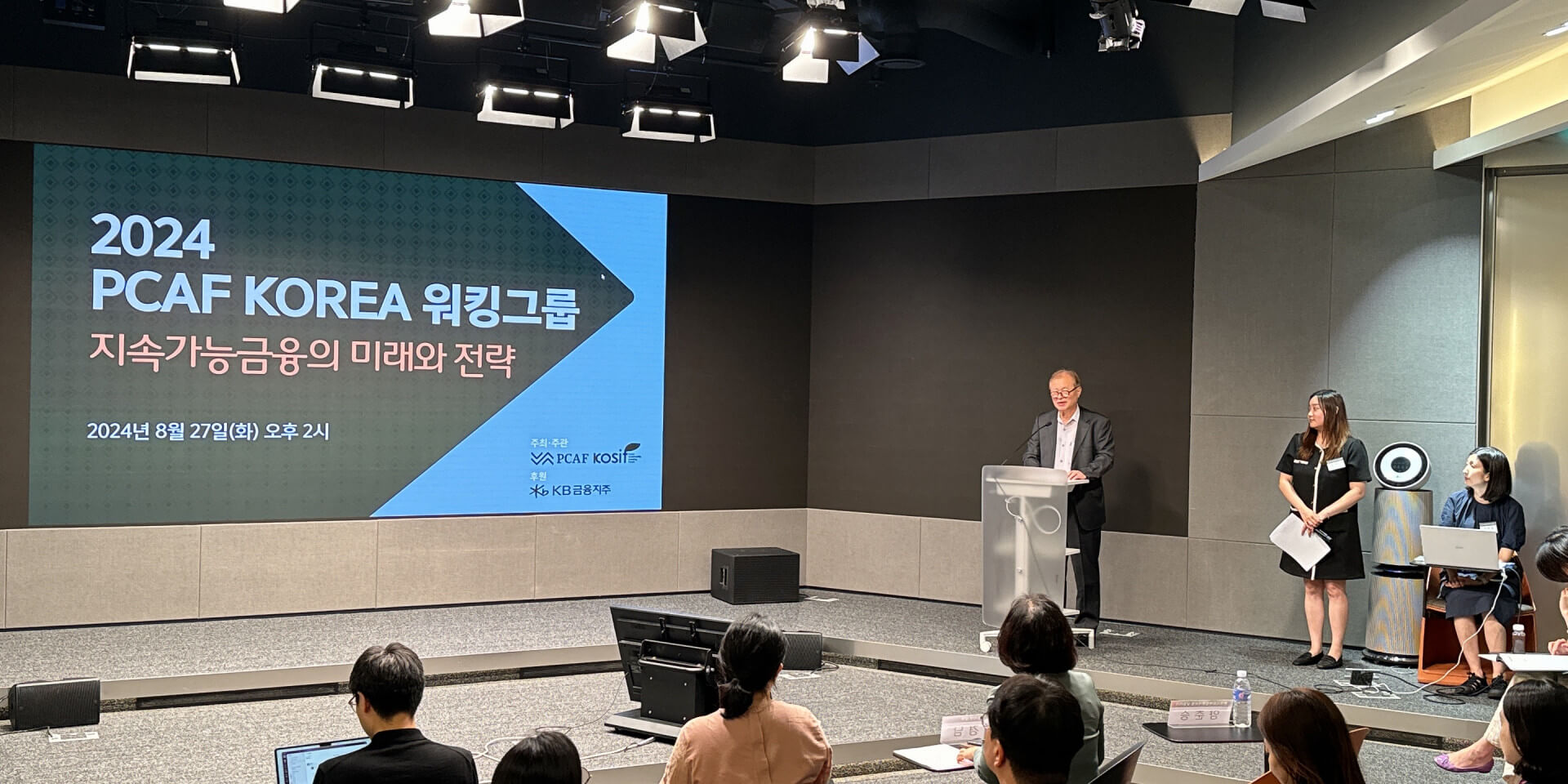
Opening Remarks
The event commenced with opening remarks from Kim Keoung-Nam, Managing Director of KB Financial Group and Chair of PCAF-Korea. Kim highlighted the necessity for financial institutions to accurately measure and manage their financed emissions, emphasizing the pivotal role that PCAF-Korea plays in Korea’s transition to a low-carbon economy.
Yang Chun Seung, Executive Director of KoSIF, followed with his opening remarks, stressing the importance of a standardized methodology for disclosing emissions to achieve sustainable finance goals. A video message from Madeline Schneider, Director of Operations at PCAF, reinforced the global momentum behind PCAF, with more than 530 financial institutions now participating worldwide.
Highlights
The event featured a series of expert presentations. Park Nam Young, Finance Team Leader at KoSIF, provided an overview of recent PCAF developments, including the launch of the PCAF Academy and the PCAF Disclosure Checklist (DCL). These tools are expected to elevate the credibility of emissions reporting for PCAF Signatories.
Kim Tae-Han, Principal Researcher at KoSIF, introduced key considerations for managing biodiversity risks within financial institutions. He emphasized the integration of biodiversity into environmental assessments, highlighting the importance of safeguarding endangered species and ecosystems, as well as protecting indigenous communities’ cultural values.
The final presentation by Cho Ko Un, ESG Department Manager at DGB Financial Group, focused on how the organization is managing financed emissions using PCAF guidelines. She shared practical insights into how financial institutions can reduce emission intensities, despite the inevitable increase in absolute emissions due to business expansion.
Engagement and next steps
The event concluded with an open discussion, where participants shared insights on the challenges faced by Korean financial institutions in measuring and managing financed emissions. The attendees expressed strong interest in future working groups that could facilitate more in-depth exchanges on best practices and strategies for enhancing sustainability efforts across the sector.
One of the biggest challenges currently faced by Korean financial institutions are incoming mandatory ESG disclosure requirements. The Korea Sustainability Standards Board (KSSB) is establishing Korean ESG disclosure standards based on the International Sustainability Standards Board (ISSB) guidelines, tailored to local standards. In October of last year, the Financial Services Commission (FSC) of Korea postponed the implementation of these requirements until after 2026, which has caused confusion among financial institutions. Although it is true that there are limitations and margins of error in Scope 3 data, the attendees participating in the PCAF Korea Working Group expressed a positive view towards these mandatory ESG disclosures. The concluding consensus being that increasing transparency of exposure to these risks helps society, and that the Korean financial institutions present are continuously working towards accurately calculating and reducing financed emissions.
Attendee Feedback
Attendees provided feedback that their implementation of the PCAF Standard is essential for transparency and accountability in their sustainability reporting. Additionally, attendees provided positive feedback around the sessions engagement with how to embed biodiversity risks into their broader environmental risk management frameworks.
Lastly, through the event, attendees mentioned the value of ‘not being alone’ in grappling with the complexities of financed emissions, seeing the value of continued collaboration in future working groups to overcome hurdles collectively. This peer-to-peer engagement has motivated institutions to deepen their commitment to sustainable finance.